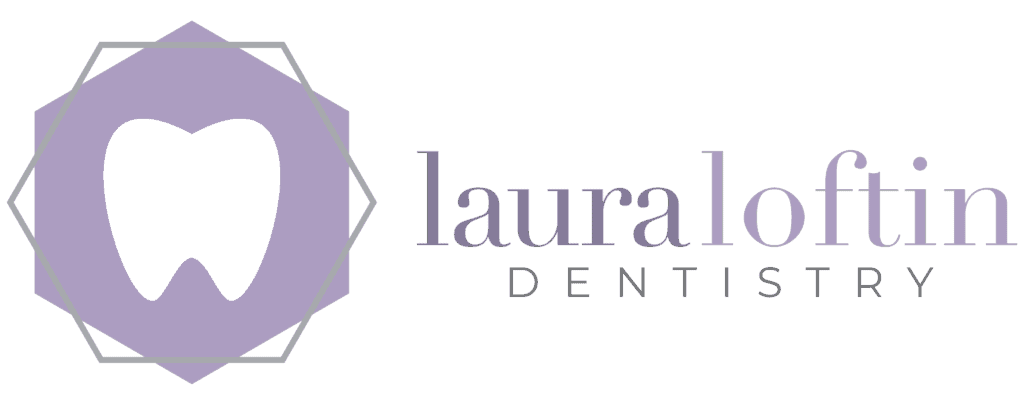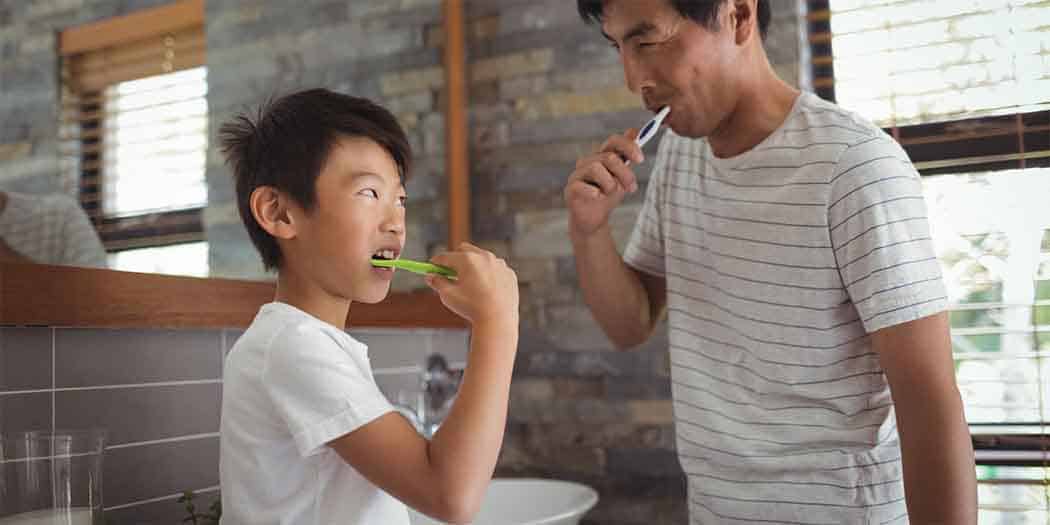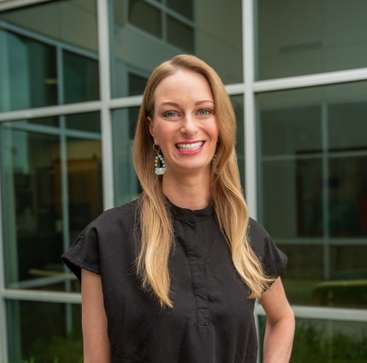Dentists plead with patients to brush and floss teeth regularly because that practice is one of the best ways to prevent tooth decay and gum disease. But how often is “regularly,” and more specifically, how many times a day should you brush your teeth? People often hear brushing 3 times a day should be the norm but is 3 actually the magic number or not?
When patients ask Fort Worth dentist Laura Loftin: “How many times should I brush my teeth?”—she generally recommends brushing teeth two to four times per day. The brushing 3 times a day “rule of thumb” most likely comes from people hearing that you should brush first thing in the morning, before you go to bed, and after you eat.
Dr. Loftin does recommend brushing a minimum of twice per day because we all miss spots. Calculus (tartar) starts to attach to tooth structure in 24 hours, and brushing twice daily helps prevent calculus build-up, not to mention cavities, tooth loss, and gum disease.
If you are someone who likes to brush your teeth 10 times a day, have at it, but Dr. Loftin only recommends doing so if you use a soft bristle toothbrush.
How often to brush teeth also depends on the individual
If you really want to know how many times do you brush your teeth, it’s important to have a conversation with your dentist about brushing and flossing habits AND to be honest. Dr. Loftin makes a point to get to know her patients and learn about their brushing habits, type of toothbrush used, and how frequently they floss.
She asks patients: how often do you brush your teeth; how do you go about brushing your teeth; where do you start; how do you work your way around your mouth; and what are your flossing habits?
During a dental exam, if Dr. Loftin sees erosion of gum tissue on the upper left side, that usually indicates the patient is right hand dominant. On the other hand, it’s hard to access some areas of the mouth while brushing. A good dentist can identify those hard-to-reach spots during an exam and provide tips on how to brush safely and effectively.
Who should brush their teeth more frequently?
How many times should you brush your teeth a day may vary based on other factors. For example, if you wear braces or clear teeth aligners like Reveal® or Invisalign Fort Worth, brushing 3 times a day may not be enough. It’s typically best to brush in the morning, before bedtime, and after any meals or snacks. Food can get lodged in between teeth and braces or aligners, so it’s important to at least do a light brush after eating.
If you regularly consume certain foods and beverages—like wine, tea, or blueberries—you may want to brush your teeth more frequently to prevent staining. So, how many times are you supposed to brush your teeth if you enjoy consuming these teeth-staining culprits? If it’s not convenient to brush right away (which is best), say you’re drinking wine at a restaurant, swish water around in your mouth so stains don’t embed in teeth.
It’s also important to stay on top of teeth whitening Fort Worth if you enjoy your tea, wine, or blueberries. How many times should I brush my teeth after getting teeth whitened? There is no correlation between whitening and brushing, so you still need to brush your teeth at least twice a day after you get your teeth whitened.
Tools and techniques matter when brushing and flossing teeth
Some people do go overboard when brushing and flossing teeth and can be heavy-handed, which may cause damage to tooth enamel and gum tissue. Dr. Loftin strongly recommends against aggressive toothbrushing and flossing and implores patients not to use toothbrushes with hard, firm bristles.
It used to be the rule that you should use a hard bristle toothbrush to get teeth clean. The thought was that scrubbing teeth vigorously is similar to scrubbing a stain out of something like a countertop. People think a gentle touch won’t do much, but it does! A softer toothbrush will get everything off as long as you brush your teeth at least twice a day and use proper technique.
Hard toothbrushes tear away healthy gum tissue because it’s so delicate, and unfortunately, it’s near impossible to grow back. Your delicate gum tissue and the gums keep teeth attached, so if you’re heavy-handed and compromise the gum tissue, your teeth could become loose or fall out. How many times a day you brush your teeth has less relevance than the type of toothbrush (always go for soft bristles!) and how aggressively you brush.
And don’t avoid flossing! To really keep teeth clean, remove plaque, and prevent tartar build-up, flossing is a must. Flossing separates the teeth, which is essential for optimum tooth cleaning and the prevention of tooth decay and gum disease. Adults should use traditional dental floss to get the best results.
How to help kids learn good toothbrushing and flossing habits
Dr. Loftin encourages parents to bring their kids along when they come in for their dental cleanings. That way, children get used to the dentist’s office and don’t find it scary when they come in for their own exams and cleanings, which should start at about 3 years of age.
Children should also brush their teeth at least twice a day. One way to encourage kids to brush in the morning and before bedtime is to use a teeth brushing calendar. These calendars help kids remember to brush and can give them a feeling of accomplishment. You can download a teeth brushing calendar from the American Dental Association here, or look for other options online.
It’s also a great idea to get children into the habit of flossing early on. Dr. Loftin recommends using the flossing picks shaped like a football goal. They’re easy to use—just pop the floss between all teeth—and carry on. This process goes much more quickly than using traditional floss, and many parents tell Dr. Loftin they find flossing picks helpful when rushing to get children to school and in bed during busy days.
We can help you master the fine art of brushing your teeth!
Well, maybe it’s not a fine art but it is important to get it right. Dr. Loftin and her team of friendly and gentle dental hygienists can explain proper brushing and flossing techniques. And based on your individual needs, they can also guide you on how many times should you brush your teeth a day.
To schedule a dental appointment with Dr. Loftin at her dental offices in Fort Worth TX, please contact us today!


